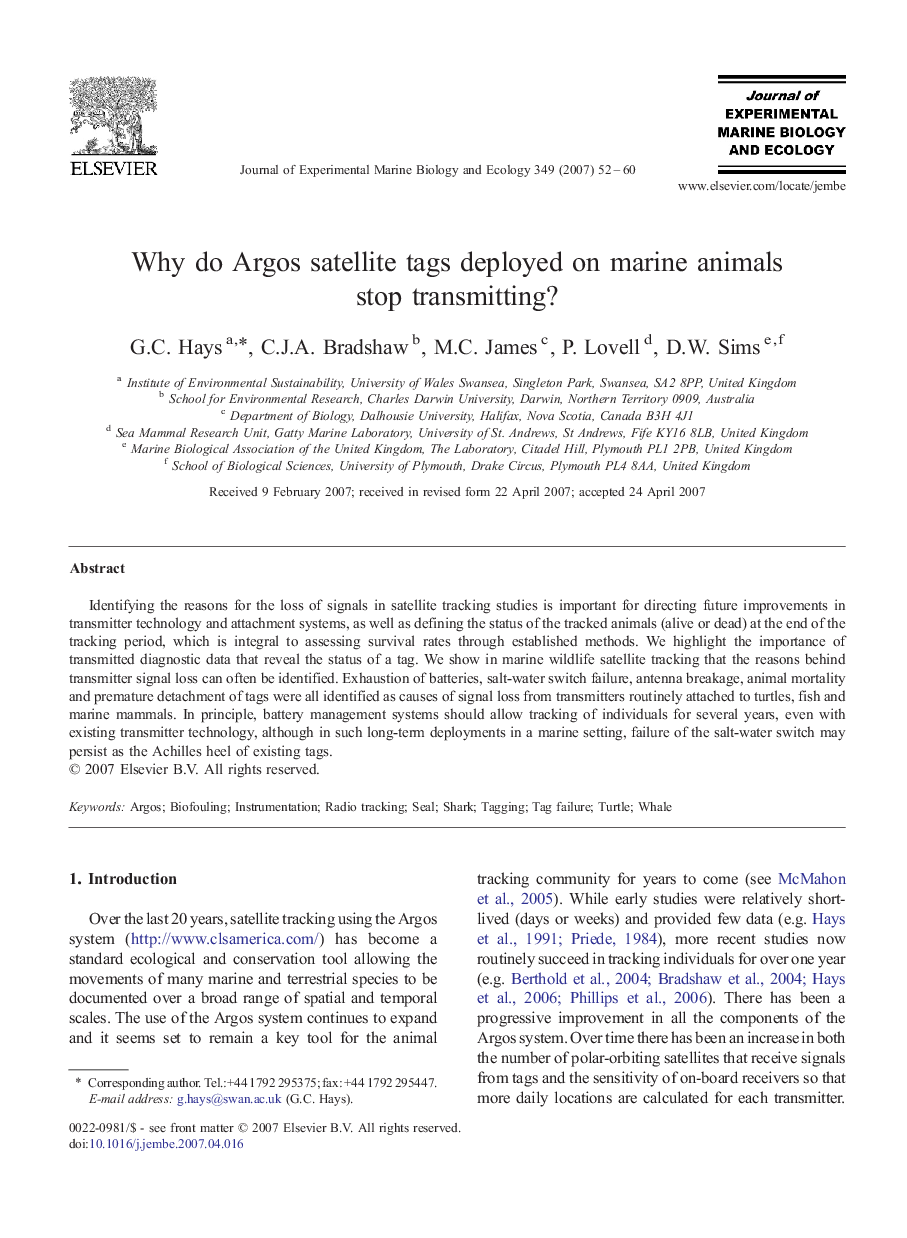| Article ID | Journal | Published Year | Pages | File Type |
|---|---|---|---|---|
| 4397705 | Journal of Experimental Marine Biology and Ecology | 2007 | 9 Pages |
Identifying the reasons for the loss of signals in satellite tracking studies is important for directing future improvements in transmitter technology and attachment systems, as well as defining the status of the tracked animals (alive or dead) at the end of the tracking period, which is integral to assessing survival rates through established methods. We highlight the importance of transmitted diagnostic data that reveal the status of a tag. We show in marine wildlife satellite tracking that the reasons behind transmitter signal loss can often be identified. Exhaustion of batteries, salt-water switch failure, antenna breakage, animal mortality and premature detachment of tags were all identified as causes of signal loss from transmitters routinely attached to turtles, fish and marine mammals. In principle, battery management systems should allow tracking of individuals for several years, even with existing transmitter technology, although in such long-term deployments in a marine setting, failure of the salt-water switch may persist as the Achilles heel of existing tags.
